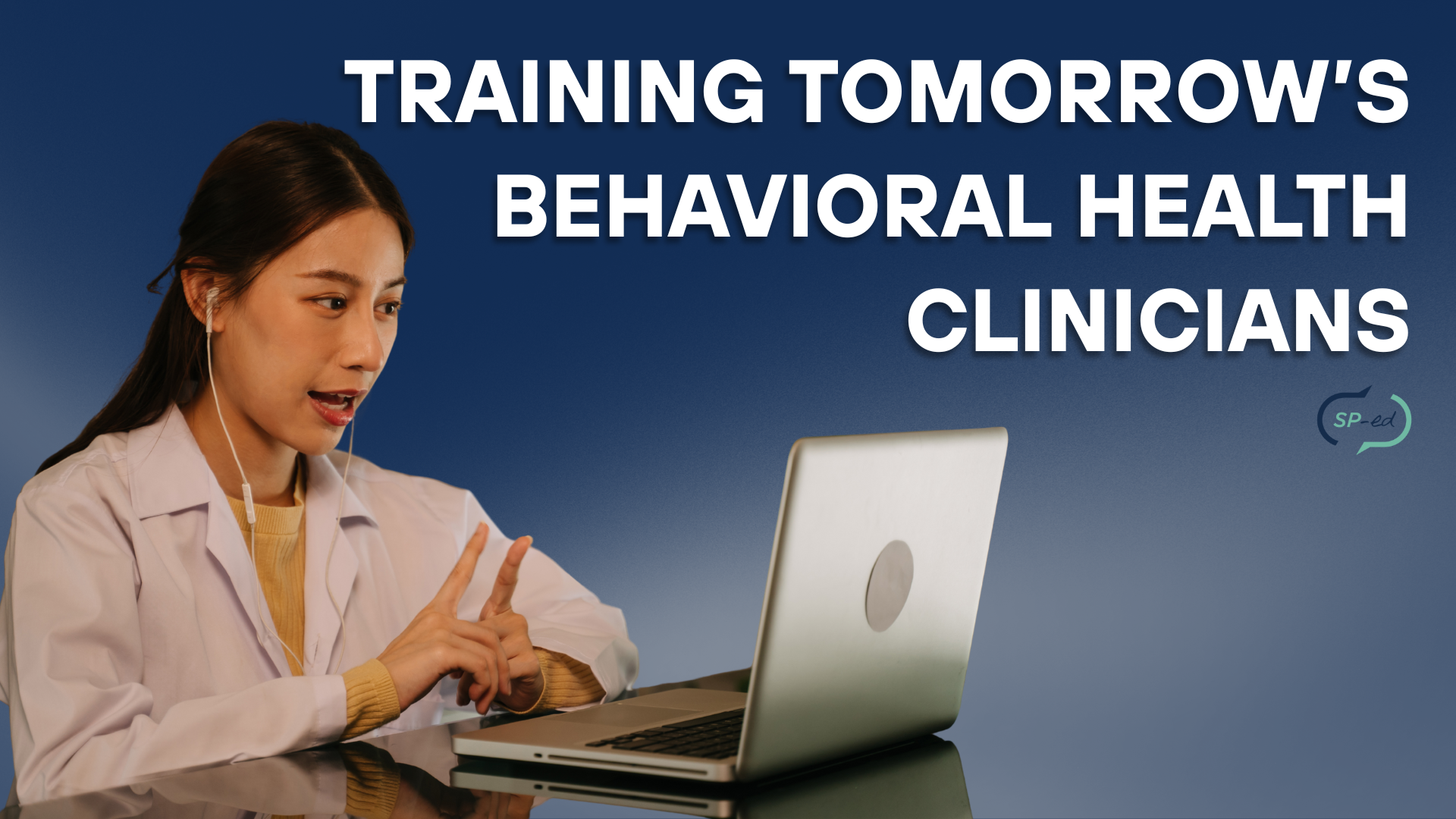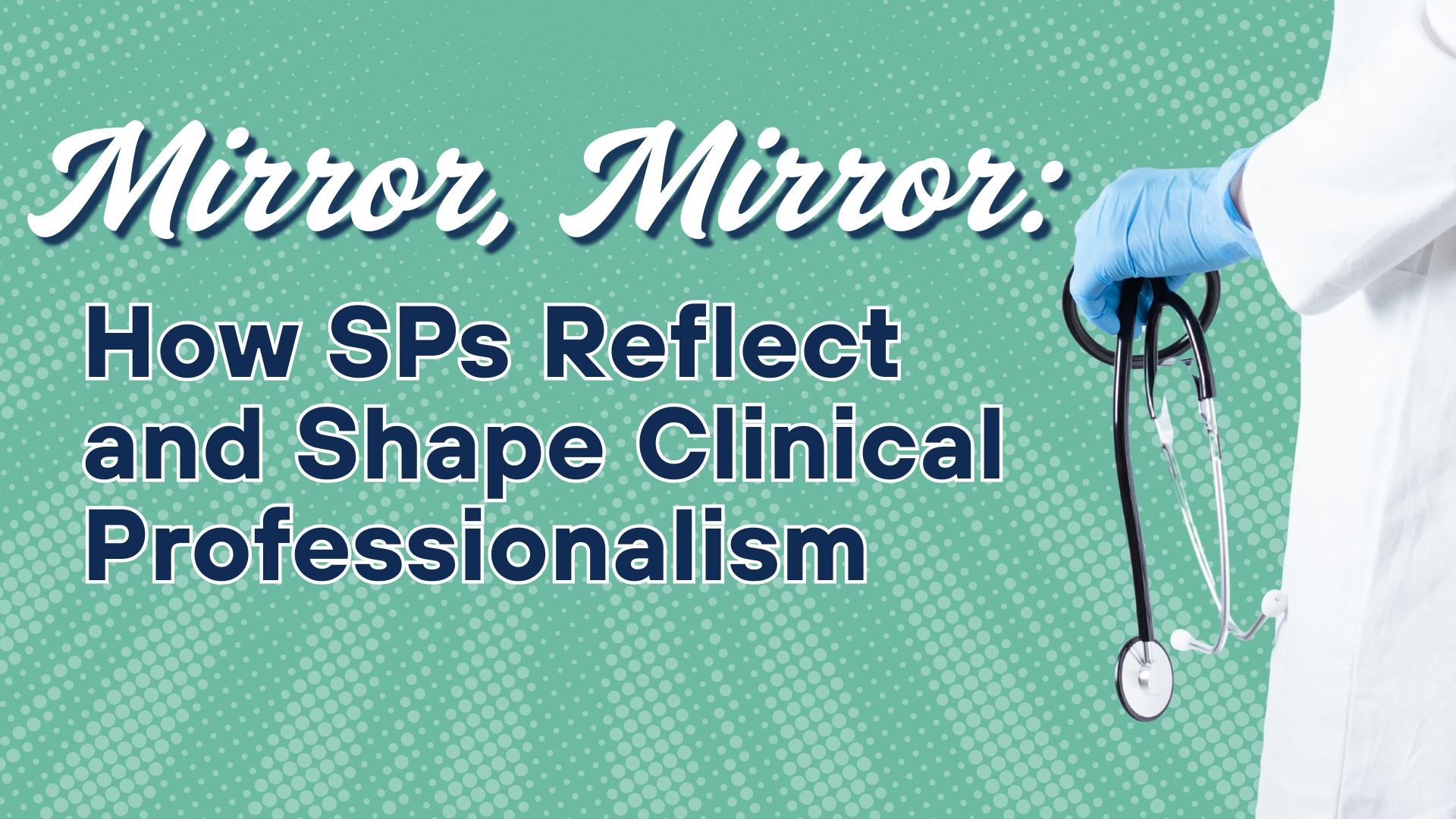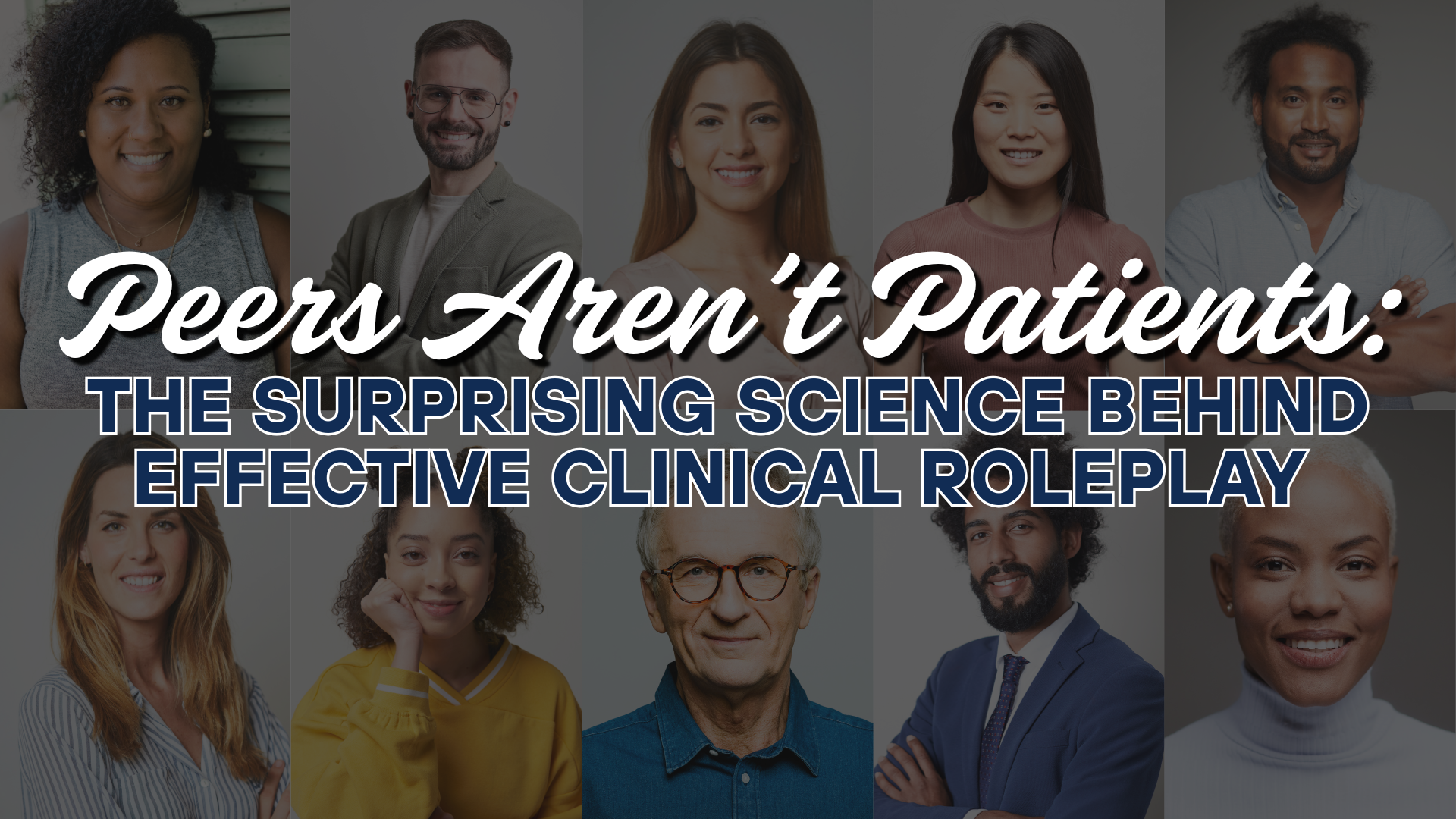
By: Renee Wadsworth
January 13, 2026
Five practical ways to bring more humanity, connection, and learner engagement into clinical training in 2026 using communication-focused strategies that can be implemented mid-semester.

By: Renee Wadsworth
November 04, 2025
Learn how Standardized Patient methodology preserves deep learning, metacognition, and critical thinking in healthcare education amid rising AI use.

By: Renee Wadsworth
October 08, 2025
Mental health is no longer a “niche.” Counseling and psychology programs are moving online, making education more accessible but also raising the stakes: How do we make sure students come out as whole, relationally strong clinicians, not just theory experts behind a screen?

By: Renee Wadsworth
September 03, 2025
Professionalism in healthcare is more than white coats and punctuality—it’s trust, empathy, and communication. SPs offer a unique way to reflect learner behavior, model patient-centered dialogue, and turn missteps into growth. In this article, discover how SP feedback transforms professionalism from a vague ideal into a measurable, teachable practice.

By: Renee Wadsworth
August 12, 2025
Telehealth isn’t coming—it’s here. Yet many programs still treat it like an optional skillset. SP-driven telehealth simulations don’t just teach tech—they prepare future clinicians for the complexity, equity challenges, and human connection that virtual care demands. Discover why your curriculum can’t wait.

By: Renee Wadsworth
July 06, 2025
Peer roleplay and faculty-led simulations may seem practical, but they don’t deliver the same depth or learning outcomes. SPs are more than performers—they are educational collaborators who provide realistic portrayals and structured feedback to help learners grow. When integrated effectively, SP methodology leads to more confident, competent, and compassionate healthcare professionals.

By: Renee Wadsworth
October 18, 2023
Explore the importance of embracing diversity and inclusion in medical simulation training in our latest blog post. From beginning in simulation design to working with SPs of lived experience. Learn the methods and strategies for creating inclusive learning experiences in healthcare.

By: Renee Wadsworth
October 11, 2023
From the introspective journey of a seasoned doctor to the fresh insights of junior colleagues, uncover the multifaceted role of reflection in the realm of medical excellence in our new article.

By: Renee Wadsworth
September 27, 2023
Learn how authentic encounters with standardized patients from the LGBTQ+ community enrich empathy and elevate healthcare training for students and clinicians. Discover the power of lived experiences in our latest article.

By: Renee Wadsworth
September 20, 2023
Simulated medical training is essential but should never come at the expense of the well-being of Simulated Patients (SPs). Read our latest article on promoting psychological safety for LGBTQ+ SPs in healthcare education.

By: Renee Wadsworth
August 29, 2023
Research continues to show that gender-affirming care, encompassing all mental and medical care that affirms a patients' gender identities, significantly enhances the mental health of gender diverse, transgender, and nonbinary individuals. Dive into our latest article to understand these crucial supports and explore actual resources to aid patients in the process.

By: Renee Wadsworth
August 23, 2023
Ever wondered about the impact of limited LGBTQ+ patient exposure on healthcare? Discover the implications and how Simclusive offers a hands-on solution. Engage, Learn, Transform!

By: Renee Wadsworth
August 09, 2023
In the realm of telehealth, ensuring equitable access is a pressing issue. At SP-ed, we believe simulation can make a big difference. Our latest article delves into the three key areas where this training can bridge the gap, from cultural competency to digital literacy.

By: Renee Wadsworth
August 07, 2023
Seeking a deeper understanding of mental health issues in transgender patients? Our new article details risk factors, assessment techniques, and self-managed coping strategies to guide your practice.

By: Renee Wadsworth
July 25, 2023
Find out in our latest article how the strive for cultural competency, particularly in the care of LGBTQ+ patients, can sometimes lead to unintended consequences and overshadow the importance of authenticity.

By: Renee Wadsworth
July 18, 2023
Our latest article delves into the unique healthcare needs of transgender patients, with a special focus on physical examinations. Discover the potential of gender-affirming language, the value of self-examinations, and how health professionals can cultivate comfort and trust.

By: Renee Wadsworth
July 17, 2023
From remote patient assessment to home-care instructions, telemedicine nursing is a world of its own. Read our latest article to find out how remote standardized patients can help nurses refine their skills in this exciting new field.

By: Renee Wadsworth
June 27, 2023
Standardized patients, especially those based remotely, offer myriad benefits to reinforce your hospital's commitment to top-tier patient care.

By: Renee Wadsworth
June 02, 2023
Preventing HIV in the LGBTQ+ community goes beyond medical prescriptions. Discover how cultural competence and the 5Ps method play a key role in assessing the need for Preexposure Prophylaxis (PrEP) among LGBTQ+ patients.

By: Renee Wadsworth
May 24, 2023
Working to improve your conversations about sexual health with LGBTQ patients? Here are five key techniques to help your patients feel respected and seen.

By: Mu Lin
February 21, 2023
It's time to bridge the gap in healthcare for the LGBTQ community. Despite the unique needs of these patients, many providers have little training in gender-affirming language and techniques. Read about the unmet needs for training in this important article.

By: Mu Lin
January 30, 2023
To develop a forward-looking telehealth curriculum, the academic community needs to agree on what to include in the curricula. Read our blog post about the core telehealth competencies and other challenges facing medical educators today.






















